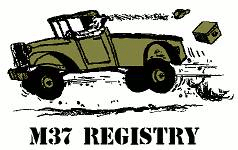I finally got the new tires on which has helped the vibration/rough riding quite a bit. Still notice a fairly strong vibration when driving over 35 mph on level ground or under mild accelleration. Not present under hard accelleration or going up a hill. I did notice while adjusting the brakes that when I turned the rear wheels I could feel the gears in the rear differential as I turned the tire.
Is it easy to pull the cover and check?
Rear Dif vibration?
Moderators: Cal_Gary, T. Highway, Monkey Man, robi
Rear Dif vibration?
Believe! Always Believe!
Sounds more like a bent drive shaft, a bad rear u-joint, or a pinion gear bearing to me. Worn gears whine a bit, but they don't usually cause vibration. If the drive shaft is bent, it's best to fix that first. If you don't, it can beat the new bearings to death faster than you would ever imagine.
"PER ARDUA AD ITER"
put the truck's rear up on stands, then put the T case in neutral. Get a sledgehammer and stand it up on the head, so the handle points straight up. Put it under the truck, scooted over so that it just almost touches the driveshaft. Hold one tire and turn the other so the differential spins the shaft... this will quickly and easily show you if it's bent. I dont know what the spec for run out is, however. This works remarkably well for putting the old friction fit rims on semis, I used to be able to get a tire on the hub pretty dang straight this way. 

Glad to hear that the drive shaft is okay. That's one potential vibration source eliminated. 
Now, for the u-joints: there should be no free play there whatsoever. Try moving them up and down along both axes of the "+" part. Then, make sure the yoke can't move and try twisting the drive shaft back and forth. If you can see (or feel) movement in either of these tests, replace the u-joint.
When you're satisfied that the u-joint is also good but you still have wavering in the yoke, you'll need to check the bearing on the pinion shaft.
Have you noticed that these tests go from the easiest to the hardest? There's a reason for that!
Good luck, have fun playing in the dirt, and let us know what the problem turned out to be.
Now, for the u-joints: there should be no free play there whatsoever. Try moving them up and down along both axes of the "+" part. Then, make sure the yoke can't move and try twisting the drive shaft back and forth. If you can see (or feel) movement in either of these tests, replace the u-joint.
When you're satisfied that the u-joint is also good but you still have wavering in the yoke, you'll need to check the bearing on the pinion shaft.
Have you noticed that these tests go from the easiest to the hardest? There's a reason for that!
Good luck, have fun playing in the dirt, and let us know what the problem turned out to be.
"PER ARDUA AD ITER"
-
343fireman1
- Posts: 9
- Joined: Wed Jul 01, 2009 5:47 pm
- Location: Dallas, TX
I've actually noticed this as well. Anytime i get over 40 - 45ish i get a pretty prominent, low tone vibration from the rear. It once happened when i was in tow, vehicle off, under no engine power or load. It's an akward vibration I've never heard before on anything else. If you figure it out, lemme know.
In honor of those who've made the ultimate sacrifice.




